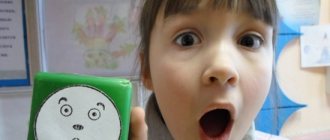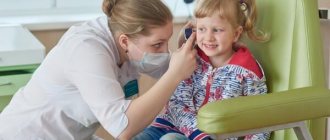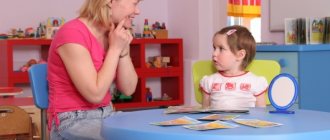Documents for passing the Moscow Central Medical Examiner's Center
Since I myself recently collected and prepared documents for the central commission for my child, I will share specific personal experience.
In order to get to the specialists of the Moscow Medical Center, first of all you need to make an appointment. Registration is carried out either by telephone of the commission, or electronically on the official website of the organization https://ocpsmds.mskobr.ru/
After making an appointment over the phone, you will be sent to a commission at one of the branches of the Center for Clinical Practice in the capital, they will tell you the date and exact time of reception of specialists, they will clarify what package of documents you should have on hand, and they will warn you about the need to have replacement shoes or shoe covers for yourself and your child.
One of the branches of CPMPK in Moscow is located at the address: Fadeeva Street, building 2. Directions to the Mayakovskaya metro station, then walk 7-10 minutes.
As a rule, due to the large flow of children, you have at least a week or two before admission, during which time you can collect the necessary documents. What are your next steps?
— At the children's clinic at your place of residence, you make an appointment with your local pediatrician. Since you need to see an otolaryngologist (ENT doctor), an ophthalmologist and a neurologist, check with your local doctor which specialists you can make an appointment with yourself, and which ones he gives a referral to. Next, your local doctor with the results from medical specialists goes to the head physician (head of the DGP). !You will receive only 1 document in your hands from the children's clinic for the CPMPK - a referral to the commission with a seal and signature of the head physician of the DGP.
— The kindergarten speech therapist will prepare a conclusion for you based on the results of his conversation and testing of the baby.
— The group teachers and the kindergarten teacher-psychologist draw up an individual profile for the child.
— For the CPMPK you will need to make copies of the following documents:
- child's birth certificate
- parent's passport (main page + registration)
- certificates in form 208 with a pink stamp confirming the registration of the child at the place of residence
With originals and copies of the birth certificate, passport and registration certificate, as well as with the characteristics and conclusion of the speech therapist from the kindergarten, you must appear at the time specified by appointment at the Center for Medical Acquisition. You will also need to fill out an application on the spot (issued immediately at the reception), so do not forget to arm yourself with a fountain pen. Remember about shoe covers or replacement shoes for all family members!
The commission consists of 3 specialists: a speech therapist, a psychologist and a defectologist. They talk with the child, ask questions, maintain an active dialogue in order to determine the level of speech development of your baby and identify characteristic problem areas.
A speech therapist, psychologist and defectologist draw up a comprehensive conclusion about the child’s speech development. The issuance of conclusions from the Moscow Center for Medical Inspectorate is carried out centrally at the address: Orlikov Lane, building 8 (Krasnye Vorota metro station) on weekdays from Monday to Friday from 9 to 18.30 on the 3rd floor.
You must have your passport with you. The presence of a child is NOT required.
What happens at the commission?
Parents come to the examination with their baby. The PMPK meets collegially in one room. A speech pathologist, clinical psychologist, teacher, psychiatrist or neurologist talks with the baby in the presence of adults.
The listed doctors are located at the same table, communicating with the child standing opposite them. Or they are at different tables, and the baby takes turns approaching each person present. During the examination you will have to answer questions and complete tasks.
The atmosphere of the commission can frighten the child. Specialists do not try to find an approach to the baby; they ask questions hastily, without giving time to think.
The duration of the examination is from one to two hours. It is important that parents reassure the child and are able to protect against an overly harsh tone or an incorrect diagnosis. It is worth bringing food and water for your baby.
TsPMK Krasnye Vorota metro station
I’ll specifically clarify how to find the Central Commission of the Center for Medical Promotion at the Red Gate:
exit the metro towards Orlikov Lane, turn left behind the metro station building and go through the houses (the embassy on the right, the playground on the left behind the fence) to a parallel street - this will be Orlikov Lane. Then follow the right to the second arch in the houses. Landmarks along the route are Raiffeisen Bank and the Teremok grocery store. The entrance to the CPMPK is located on the inside of the residential building; you need to go through a barrier and a metal lattice door.
A speech therapist in a kindergarten who meticulously prepares speech therapy classes at a preschool institution in accordance with an individual work plan for each individual child really radically changes the speech situation. Lessons taught by a speech therapist in kindergarten are necessary for more than half of modern children - according to statistics for 2015, 52.5% of children have sound pronunciation defects, of which 16.7% are complete sound replacements, 35.8% are erased or pronounced dysarthria. The conclusion received from the Central Psychological, Medical and Pedagogical Commission on the peculiarities of the child’s speech development is the opportunity for systematic individual lessons from a speech therapist and educational psychologist with your child throughout the school year.
How to prepare?
Before the examination, you need to explain to the child what is required of him, explain in what form the conversation will take place. You can ask your child the questions that will be discussed at the commission in a calm home environment. They depend on the age of the baby and the preliminary diagnosis.
At the commission, experts ask:
- Tell about yourself and your family: name, age, place of residence, occupation of parents. Describe what the baby prefers to play with friends, what to do with mom and dad. Name the teachers and nannies. Tell us about your pets: what’s their name, what they eat, how they play. Describe your house: number of rooms, purpose of the kitchen, toilet, bathroom.
- Tell him what he knows about the concepts of day and night, weekdays and holidays, describe his daily routine.
- Name the colors and shapes of the objects shown in the pictures, their location (under the table, on a chair, above the window).
- Sort the pictures into groups: food, pets, furniture, toys. Find an extra item in the row and explain why.
- Name the parts of the body and their purpose.
- Remember a series of objects, turn around and find what has changed.
- Repeat the words spoken by the specialist in the same order.
They check the articulation and literacy of sentence construction in accordance with age standards. The child should know what synonyms are (fun - joy), antonyms (crying - laughter), homonyms (key, braid), give examples.
Then phonemic awareness is checked. To do this, the child names the syllables of a given word and counts the words in the spoken sentence. They check whether the baby perceives the meaning of words that are similar in articulation: bark - hole.
The level of coherent speech is analyzed by asking a small patient to compose a story based on a picture.
The perception of someone else's speech is assessed by giving the task to retell a short story. The baby should:
- demonstrate how he sings, jumps, eats;
- express your needs and feelings: tired, hungry, wants to sleep;
- catching or hitting a ball, jumping on one leg is an indicator of coordination of movements.
The tasks and questions asked by PMPC members are not difficult. It is important to understand the reason why the child could not complete them. This could be banal excitement, pedagogical neglect, poor understanding of the Russian language (if it is not the child’s native language) or underdevelopment of speech that requires correction.
It is necessary to test the child in advance so that he does not worry when he hears a question or task, and understands what awaits him. However, the diagnostic questions of PMPK are standard and any child of a certain age can cope with them.
Who makes recommendations?
Most often, recommendations to undergo a speech therapy commission are given either by a doctor from the kindergarten where the child goes, or by a specialist from the speech kindergarten when the local one is absent. Children who have speech impairments and need correction are put on a list, which is then introduced to their parents. If they agree to be transferred to a special speech therapy group, then they should appear for an interview. There a two-sided form is given, that is, a referral for a preliminary medical examination before the commission. No one will force parents to go to doctors; such a decision is purely voluntary.
Special garden
Many parents want to place their child in speech therapy groups, which are available in combined kindergartens, or directly in a special kindergarten with such a focus. Many people know that preparation for school and educational programs in these groups are much better and higher than in ordinary ones. In addition, it provides for a certain number of children, from ten to fourteen, no more. Thanks to this, each child will receive more individual attention. It is not very easy to get into such a group if the children do not have any speech disorders.
What help can be provided to a child with speech therapy disorders?
If a child has any disturbances in speech development, he will need to undergo a speech therapy commission. Based on its results, it can be defined as:
- A physical center or a speech center are separate classes with a speech therapist, when a child goes to a simple group in kindergarten, but receives additional training from a speech pathologist. In this way, minor violations are corrected.
- Logogroup, or speech therapy group. There are much fewer children in it than in ordinary ones (12/25). All the kids here have speech disorders. The logogroup may be in the kindergarten that the child already attends, but if there are no places or such groups in the institution, the child will have to be transferred to another place.
- A speech therapy kindergarten in which there are different correctional groups, classified depending on the speech disorders that are subject to correction.
When to contact a pediatric speech therapist
Of course, each child is individual, everyone develops differently, but normally a one-year-old baby should understand some simple phrases addressed to him, show the location of the eyes, nose and mouth, and understand the meaning of the word “impossible.”
At two years old, a baby normally knows more than 20 words, speaks simple phrases, responds to messages “Let’s go for a walk” by starting to get dressed or pointing to clothes for a walk, brings a certain toy upon request, and is able to listen to a short fairy tale.
By the age of 3, a child already has a fairly extensive vocabulary, asks a lot of questions, and tries to share his impressions with his parents.
Today, the norms have changed somewhat, many three-year-olds are just beginning to speak in sentences, and the number of words spoken has decreased significantly.
However, if a child has not started talking by the age of three, avoids communicating with peers on the playground, and cannot interact with loved ones, this is a serious reason to turn to specialists.
In this case, a consultation with a neurologist is necessary, a hearing test should be performed and a speech therapist should be consulted.
A comprehensive examination of the baby will identify the problem and begin treatment. Even if your family or close friends have examples where a child was silent for up to 3 years or more, and then spoke successfully, this is not a reason to postpone a visit to specialists.
Master class on speech therapy for teachers
The goal is to increase pedagogical personal experience. In the master class there is an active discussion between teachers on the problem of theory and gaming practice.
Master class objectives:
- Development of the ability to contribute to the formation of an individual style in teaching activities.
- To create a condition for the development of professional development of a teacher, during which experience is formed in speech exercises for the development of preschool children.
Master class for speech therapist teacher:
- Organizational moments (poems).
- Announcement of the topic of the master class.
- Theoretical part (theoretical aspect).
- Practical part (games).
- Reflection (questions).
Goals and objectives of speech therapy classes according to the Federal State Educational Standard
The speech therapist must take into account the psychological characteristics of the child. Sometimes preschoolers perceive speech therapy sessions as a game. Tasks of a speech therapist:
- Learning to pronounce all sounds.
- Development of coherent speech (construction of compound simple sentences).
- Understanding the differences between sounds.
- Formation and improvement of the impressive part of speech (understand what is being said).
Speech therapist teaches how to pronounce sounds
Individual lessons are a priority. It is considered very effective in overcoming speech problems. Thanks to this form, contacts and relationships are established between the speech therapist and the child, closed children open up. During classes, various techniques can be used: games, tasks.
Important. The frequency of classes is determined by a specialist, it all depends on the speech impairment and delay. Typically, classes last about half an hour and are held a couple of times a week.
Is it possible to teach a child to pronounce the sound [sh] at home?
When talking with a speech therapist, parents are allowed to attend classes to understand the technique chosen by the specialist.








